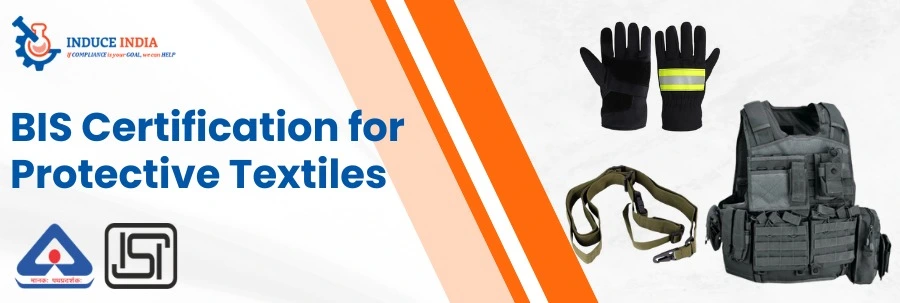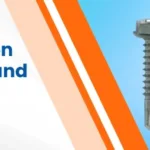BIS Certification for Protective Textiles is now mandatory to ensure the safety and reliability of these products. BIS Certification plays a very important role in assuring the quality and performance of protective textiles. Let’s learn more about QCO for Protective Textiles and advantages of BIS Certification for Protective Textiles with process and why BIS Certification is mandatory for protective textiles.
BIS Certification for Protective Textiles
BIS Certification is an approval granted by Bureau of Indian Standards which ensures that protective textiles meet all the predefined quality standards. BIS Certification assures that the products are safe, reliable, and comply with the necessary regulations. By getting BIS Certification specified ISI Mark can be used on the products which is a symbol of trust and quality assurance for both the manufacturers and the consumers.
QCO for Protective Textiles
Quality Control Order (QCO) for protective textiles sets specific standards and regulations that manufacturers must adhere to. This order is in place to ensure that the products entering the market provide the necessary protection they claim. Compliance with QCO is mandatory for manufacturers, creating a standardized and secure environment for consumers.
The Quality Control Order was published on 10th April, 2023 for protective textiles. This QCO sets specific standards and regulations that manufacturers must adhere to manufacturer the protective textiles that are given in this QCO.
- This order may be called the Protective Textiles (Quality Control Order, 2022)
- This QCO shall come into force from 6 months from the date of publication.
- An amendment was published on 24 May, 2023 and according to this amendment, this order shall come into force on the 7th October, 2023.
You can download QCO here.
Compulsory use of Standard Mark
The goods or product specified in this QCO shall bear the standard mark under the license from Bureau by the Bureau of Indian Standards (Conformity Assessment) Regulations, 2018. As mentioned in this QCO, if any manufacturer contravenes the provisions of this order (QCO) shall be punishable by the provisions of Bureau of Indian Standards Act, 2016 (11 of 2016).
Therefore, the manufacturers of protective textiles must adhere to BIS Certification to sell their products in the market.
Advantages of BIS Certification for Protective Textiles
- Enhanced Safety: BIS Certification guarantees that protective textiles are designed to meet stringent safety standards. This ensures that users can trust these products in critical situations, providing the intended protection.
- Market Credibility: If the products are BIS Certified then these products can gain a competitive edge in the market and it also ensures the customers and manufacturers that the products (protective textiles) have undergone rigorous testing and meet the highest quality standards.
- Legal Compliance: Manufacturers must comply with the specified quality standards set by BIS. This not only protects consumers/customers but also ensures businesses operating in the protective textiles industries.
- Consumer Trust: The Standard Mark is a visual representation of quality and safety. When customers see the standards mark (ISI Mark) on the product they trust and prefer on such products.
Product covered in this Quality Control Order
| Sr. No. | Goods or article | Indian Standard (IS) |
Title of Indian Standard |
| (1) | (2) | (3) | (4) |
| 1 | Curtains and Drapes | IS 15741 : 2007 | Textiles – Resistance to ignition of curtains and drapes – Specification |
| 2 | Upholstered composites used for non-domestic furniture | IS 15768 : 2008 | Textiles – Resistance to ignition of upholstered composites used for non-domestic furniture – Specification |
| 3 | Protective clothing for firefighters | IS 16890 : 2018 | Textiles – Protective Clothing for Firefighters – Specification |
| 4 | Protective gloves for firefighters | IS 16874 : 2018 | Textiles – Protective Gloves for Firefighters – Specification |
| 5 | Protective clothing for industrial workers exposed to heat | IS 15748 : 2022 | Textiles – Protective clothing for Industrial workers exposed to heat (excluding firefighters’ and welders’ clothing) |
| 6 | Clothing made of limited flame spread materials and material assemblies affording protection against heat and flame | IS 15742 : 2007 | Textiles – requirements for clothing made of limited flame spread materials and material assemblies affording protection against heat and flame – specification |
| 7 | High visibility Warning Clothes | IS 15809 : 2017 | High visibility warning clothes – Specification (first revision) |
| 8 | Protective Clothing for use in welding and allied processes | IS 16655 : 2017 | Textiles – Protective clothing for use in welding and allied processes |
| 9 | Tactical 3 point sling | IS 16725 : 2018 | Textiles – Tactical 3 point sling universal – Specification |
| 10 | Pouch for ammunition and grenades made of disruptive pattern nylon-66 | IS 16726 : 2018 | Textiles – Pouch for ammunition and grenades made of disruptive pattern nylon 6 6 – Specification |
| 11 | Bullet resistant jackets | IS 17051 : 2018 | Textiles – Bullet resistant jackets – Performance requirements |
| 12 | Water-proof multipurpose rain poncho | IS 17286 : 2019 | Textiles – Water-proof multipurpose rain poncho with convertibility as bivouac – Specification |
BIS Certification Process for Protective Textiles
The process for BIS Certification can vary based on the type of product being certified and it is for domestic manufacturers and foreign manufacturers. Here is a general overview of the BIS process:
- Identification of Standards:
This is the initial and important step in the process of BIS Certification in which we Identify whether your product falls under the mandatory certification category according to the BIS guidelines.
- Preparation of Documents:
On the basis of the product being certified, we prepare the documents.
- Application Submission:
After preparation of documents, we submit the application to the BIS website portal.
- Scrutiny of Documents:
BIS conducts a preliminary review of the submitted documents to ensure completeness and adherence to the specified standards.
- Sample Testing:
In this step a sample of the product is tested by a BIS-approved lab.
- Audit by BIS Officer:
BIS may conduct an audit of the manufacturing facility to verify that the production processes comply with the relevant standards.
- Grant of License:
If audit and test reports are done successfully, BIS Grants the license to the manufacturer.
Conclusion
In the case of Protective Textiles where safety is the priority, BIS Certification for Protective Textiles ensures that manufacturers prioritize quality and adhere to stringent standards. If a manufacturer of protective textiles is looking for BIS Certification it is a crucial step towards building safer, reliable, and quality products.
Now, manufacturers and importers of protective textiles must have BIS Certification to adhere their products with ISI Mark. Induce India as one of the best BIS Consultancy in India can assist you to obtain BIS Certification for your products as per the BIS guidelines with ease.
For more information about the QCO for protective textiles or BIS Certification feel free to contact us at +91-7503304082 or email at [email protected]



